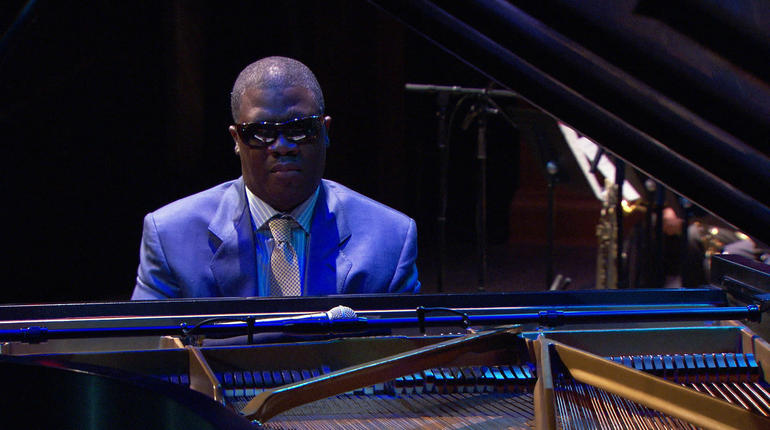Can You See From Where You Are?
/I HOPE YOU SAW the segment on 60 Minutes last Sunday night, reported by Wynton Marsalis. The segment was called The Virtuoso: Marcus Roberts. Here's a link to the video in case you missed it.
The story begins:
Marcus Roberts lost his sight as a child, but gained incredible insight into American music -- inspiring a generation of jazz musicians. Marcus went blind when he was 5 years old. And soon began trying to make sense of life in the darkness. He was unusually curious, and even tore his toys apart just to find out how they worked. Roberts developed a powerful, analytical intelligence, capable of producing music that will move your mind as well as your body. The story of his genius begins with a precious gift from his parents: a piano. His mother Coretta is sightless too, blinded by glaucoma. She remembers the pain of having to leave school in the seventh grade because she couldn't see the blackboard.
Don't you marvel? Think of these people who are sightless, but have such keen insight. One of those people, Helen Keller, reminds us that there is something worse than being sightless:
It is a terrible thing to see and have no vision. -- Helen Keller
I couldn't resist adding this photo of our grand-girl Harper. I don't know what she is imagining seeing through her "binoculars" (upside-down, no less), but clearly, whatever it is, is magnificent.
As we age, we seem to lose our vision. I'm not talking about our eyesight, although that happens too. But let's face it; we do NOT see the things a young child or a blind jazz musician does.
My dad will be 90 soon. He has lost most of his eyesight, but it seems to me like he "sees" more than he ever has, and he has always been an insightful man. So maybe there's hope for me. Maybe I won't become visionless. I want to look through the binoculars, or the camera, or the lament of the Blues, or a quiet Saturday morning enjoying a good, strong cup of coffee and the company of my Amazing-Missus, and SEE something I've never seen before.
And ultimately, there is that promise. Remember the verse? “Eye hath not seen, nor ear heard, neither have entered into the heart of man the things which God hath prepared for them that love Him.”
Several years ago now, death came way too soon for my cousin, "Bobby." He always had a toughness and swagger than I admired as a little kid looking up to him. He seemed to see things I couldn't. At his memorial service, he wanted a certain song played. I've never heard it played at a funeral since. Maybe it was just apropos for Bobby. It goes like this:
I can see clearly now, the rain is gone,
I can see all obstacles in my way
Gone are the dark clouds that had me blind
It’s gonna be a bright, bright
Sun-Shiny day.
I think I can make it now, the pain is gone
All of the bad feelings have disappeared
Here is the rainbow I’ve been praying for
It’s gonna be a bright, bright
Sun-Shiny day.






